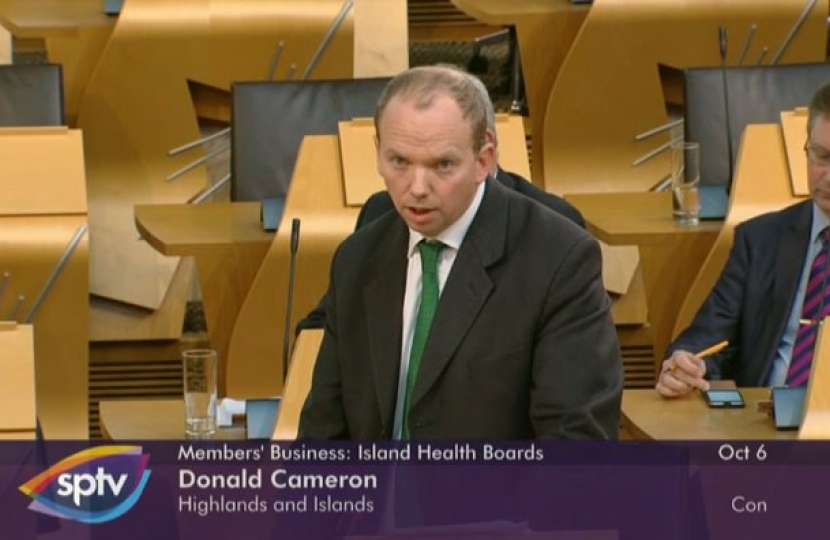
Today we had a debate in Parliament about the possibility of health board reorganisation.
In my speech, I said that as an MSP for the Highlands and Islands, I too share the concerns raised by the SNP’s manifesto commitment to review “the number, structure and regulation of health boards” and in particular I am concerned about how it might affect the health boards that cover my region.
The needs of people in rural and remote areas of Scotland are vastly different to those of people living in more densely populated areas, and as such require a very different approach to the provision of healthcare services.
This is the case even more so in island constituencies such as Orkney and Shetland, but also in the Western Isles and in the many islands within Argyll and Bute for instance.
I also spoke on this very matter at a recent meeting here in Parliament with the Royal College of Surgeons of Edinburgh who have just launched their report on the delivery of care in rural surgery. They note that there is a clear difference between the provision of healthcare services between urban and rural Scotland. The President of the Royal College, Michael Lavelle-Jones makes a particular point in the report when he says that “one size does not fit all when it comes to services delivery in these challenging environments and that the needs and provision will vary depending upon the speciality and the region”. [1]
This statement is particularly poignant in the context of this discussion because time and again when it comes to the organisation of our public services, we have seen an increasing drive to centralise services by the SNP Government.
- We have seen it with our fire services following amalgamation.
- We have seen it with our police, with the creation of a single force. Since then, there have been countless reports of problems in the service.
- We are even now seeing it with education, with proposals announced a few weeks ago by John Swinney to create regional education boards – taking powers away from local councils and centralising them to a larger body.
So recent history serves as a powerful reminder of the dangers of over-hasty, top-down, centralisation.
And at a time when health boards are still adjusting to the recent integration of health and social care, there are many valid concerns about committing to further re-organisation, unless it can clearly be shown to be in the best interests of patients.
The Scottish Conservatives are very sceptical indeed about creation of super-health boards, run on a regional basis, if that turns out to be the case...
We don’t know what the proposals are. It may be there are some elements which we can support and we will of course hold off from expressing a concluded view until something concrete has been put on the table. And I acknowledge that there is of course – already – joint working and collaboration across different health boards.
But it is vital that we know that what these proposals are as soon as possible, not simply for elected representatives to be made aware, but more importantly so that the public can have their say on the matter, and be consulted in a meaningful way.
In parliament, I repeated the call I made in early July for clarity on these proposals: will the Scottish Government give details of their plans for the re-organisation of NHS boards in Scotland as soon as possible?
[1] https://www.rcsed.ac.uk/media/414422/rural-surgery-web.pdf

